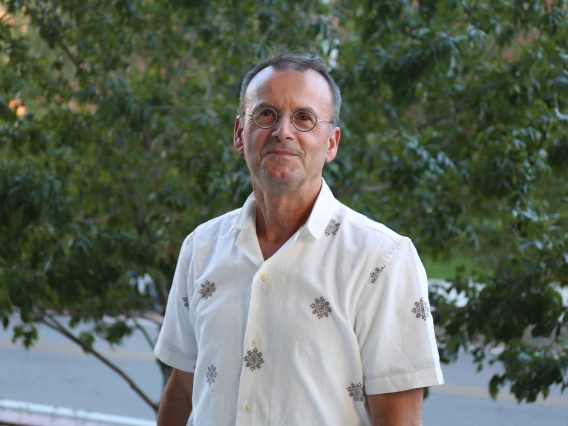
Peter Ecke, Professor in the Department of German Studies, has received a $15,000 Award for Faculty from the National Endowment for the Humanities to conduct research and revise an undergraduate course on multilingualism.
Ecke developed “Becoming Multilingual: Learning and Maintaining Two or More Languages” in 2015 to introduce undergraduate students to research on bilingual and multilingual people. The course included information to show students how myths about bilingualism and language learning persist, as well as the realities.
Since, the course has been offered nine times in spring semesters and in summer/winter sessions, providing a space for 1,367 students to examine their relationship with bilingualism and language learning. The course, GER150A1, fulfills general education requirements and typically draws interest from a wide variety of students.
“The course has attracted many Hispanic students as well as international, immigrant and Native American students. What these groups of students have in common are frequent challenges related to their perceived language proficiencies and cultural identities. But in the course, these students realize that their experiences are shared by many others,” Ecke said. “They learn what it means to acquire, maintain and forget languages, and are provided with insights that help them make informed decisions as language learners in college, in their careers and in their families.”
This course explores the human ability to acquire and maintain two, three or more languages over a lifetime. It examines the factors that contribute to successful language learning and maintenance and that counteract language forgetting and loss. Ecke discusses ways in which languages can be acquired in both childhood and adulthood, in family and school settings, and demonstrates the importance of multilingual and multicultural skills in a variety of professions.
Ecke systematically studies his undergraduate students’ language backgrounds and needs, as well as their attitudes toward and perceptions of bilingualism through pre- and post-course questionnaires. That research, combined with student autobiographical narratives and language histories, as well depictions of bilingualism in music, literature and film, will contribute to the course redesign.

